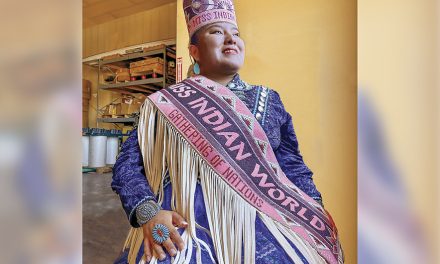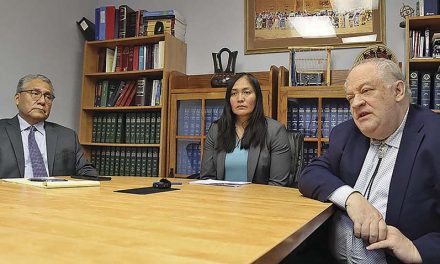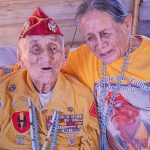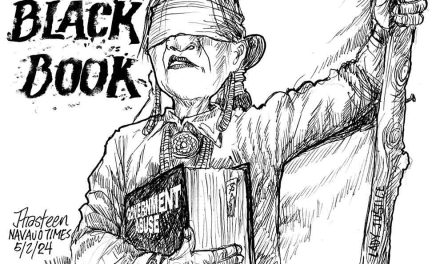
10 charged in sober living fraud case: Branch, Navajo Nation entities dedicated to cracking down on rehab home scams
PHOENIX– On Wednesday, Dec. 6, 10 people were indicted for the rehabilitation home scams that target Indigenous people.
Last May, the Navajo Nation launched Operation Rainbow Bridge to bring Diné home from the Phoenix Valley, who were scammed into joining unlicensed rehabilitation-sober living homes.
Over the next several months, Arizona Attorney General Kris Mayes aimed to find unlicensed homes and shut them down completely. This led to the shutdown of rehabilitation homes misusing the Arizona Health Care Cost Containment System, or AHCCCS.
In an email to the Navajo Times, Mayes’ office stated a probable cause for unlicensed rehabilitation homes scamming Indigenous peoples is because of structural vulnerabilities in the American Indian Health Plan not addressed by the previous administration.
The AIHP follows a fee-for-service billing model, according to Mayes’ office.
According to the Health Insurance website, a health insurance guide, fee-for-service structures are “rewarding medical providers for volume and quantity of services provided, regardless of the outcome.”
“Patients of these facilities could be in crisis and are extremely vulnerable, making it all that much more heartbreaking,” according to Mayes’ office.
With a step in the right direction of 10 people being indicted for the rehabilitation sober-living home scams, the attorney general’s office isn’t stopping there.
“The Attorney General (Mayes) will continue to prosecute and stop bad actors that are masquerading as behavioral health facilities,” said Ellen Pierce, the content and digital director for Mayes’ office, in an email to the Navajo Times.
As Mayes continues investigating the fraudulent homes, unlicensed homes are being shut down. She has had special agents from her office, AHCCCS investigators, and care staff on the scene to help individuals relocate or obtain resources.
Returning home
For the Diné who were scammed into going to the Phoenix Valley to the fraudulent sober living homes, Operation Rainbow Bridge focuses on returning them to Dinétah.
Among the Navajo agencies behind ORB is Navajo Nation Attorney General Ethel Branch, an Operation Rainbow Bridge liaison.
Branch has been working with Mayes and commends Mayes’ involvement with ORB.
Last October Branch worked with Mayes’ team to further align both entities’ goals so that the scam situation is given high-level attention.
“Certainly, the financial crimes being committed are egregious,” said Branch in an emailed response to the Navajo Times. “But the crimes being committed against our people in the course of this widespread fraudulent scheme are outright deplorable and deserve enforcement action.”
Not only did Mayes and her team attend the ORB summit in October, but they continued to show up and put their words into action.
“The 10-person indictment from December is a great example of this,” said Branch.
Mayes and her team recently attended the broader ORB summit to hear the progress presented by the Navajo Nation’s incident command and the state’s response team. They also committed to more efforts to strengthen ORB.
Mayes and Branch meet virtually outside the summits to keep communication on ORB ongoing.
Branch agrees with Mayes’ office on fraudulent rehabilitation of sober-living homes targeting Native Americans because of the fee-for-service billing model.
Branch has seen the ORB team combat the model by opening the Chinle Sober Living Center, where the Navajo Nation doesn’t have to send its people off the reservation to receive care, making them vulnerable to fraudulent homes.
Ch’ínílį living center
The Chinle Sober Living Center had an open house in October and opened in December.
The center was created under the Navajo Department of Health Director Kim Russell and Division of Behavioral and Mental Health Services Dr. Michelle Brandser, both of whom Branch commended.
Branch reported that as of Nov. 30, the ORB incident command team assisted with transporting Diné home (directly and indirectly) in 243 instances.
“That said, more of our relatives have preferred to continue seeking behavioral health care in urban areas than to return home,” said Branch. “This is in part due to the lack of care and aftercare facilities available on the Nation.”
Along with Branch, Russell, and Brandser, Navajo Nation Department of Social Services Director Thomas Cody is the ORB incident commander.
Before Russell, Rhonda Tuni was the NDOH director who helped spread awareness on the fraudulent homes, which will be updated as they are more secretive about their recruitments.
Moving forward
Every week, the different Navajo Nation entities, NDOH, DBMHS, DSS, and Navajo Nation law enforcement and criminal investigator team, meet in specified sessions with Branch to keep progressing with ORB.
The planning team for ORB meets twice a week and is led by Dariel Yazzie, the Division of Public Health Services program manager.
The logistics team for ORB meets weekly over phone calls with incident command teams from Indian Health Services and Native Health in the Phoenix Valley led by Mary Descheeny-Reyna.
Descheeny-Reyna also hosts calls weekly with other Arizona tribes to share new or updated information ORB has received.
The operational team, staffed by DBHMS and DSS staff for ORB, is ongoing in their work led by Brandser. The operations team handles the calls received from the 855-HELP-ORB hotline and then coordinates the return home, travel, housing, and transition in care as needed.
When ORB first launched over the summer, Branch said the staff worked long hours to compensate for the high-volume calls and assistance needed but has declined since.
On the state and federal side, Mayes is ensuring the people behind the fraudulent homes are held accountable for committing crimes against people.
The Diné relatives who need rehabilitation sober-living homes are people who, Branch said, deserve to be treated as such like any other Arizonan and American.
“I hope this particular indictment sends a strong message to the bad actors committing this fraud,” said Branch. “That they will be held accountable for the full scope of injury they committed against Arizonans, including the state’s Native population.”








 Highway 264,
Highway 264, I-40, WB @ Winslow
I-40, WB @ Winslow